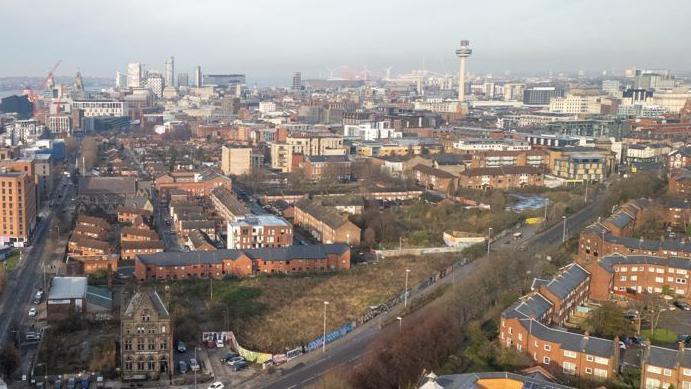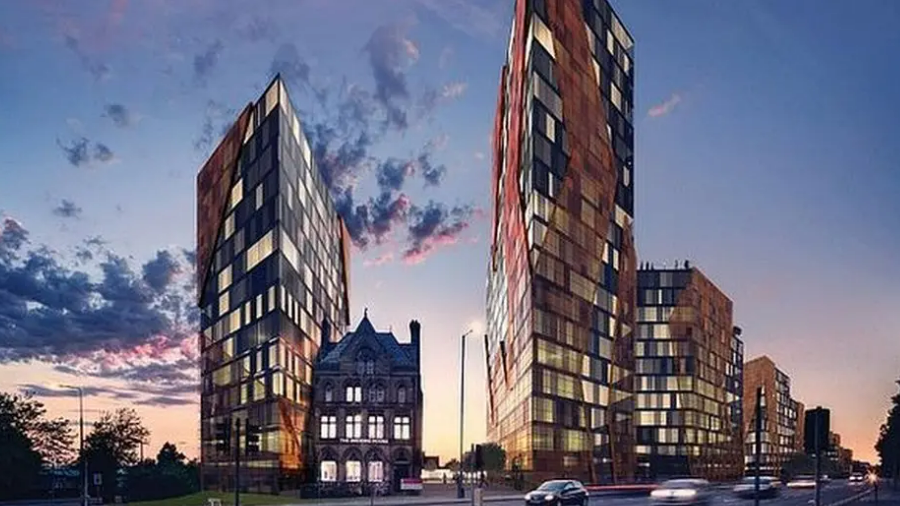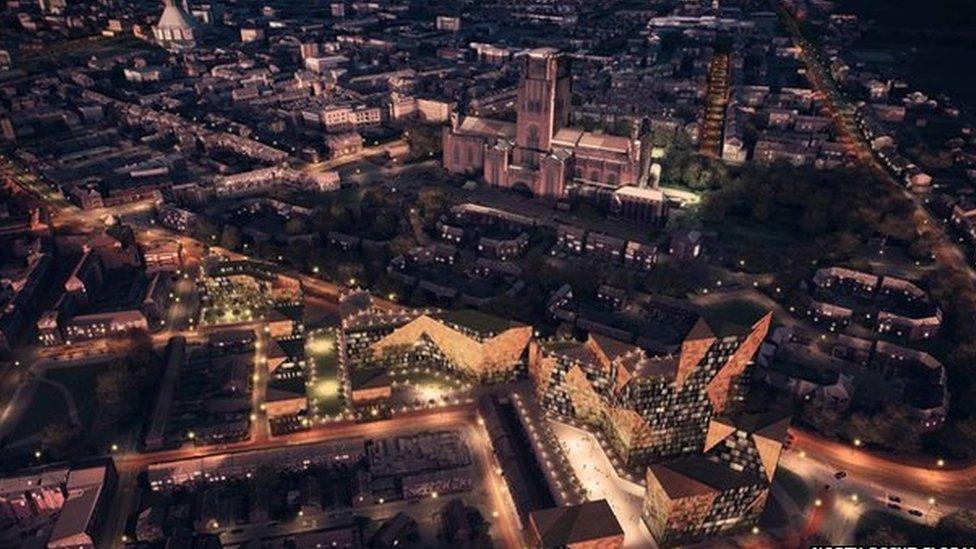Council buys land for double what it sold it for

Liverpool City Council has used £10m of government money to buy land it sold for about £5m over a decade ago
- Published
The site of a failed £200m development has been bought back a city council for twice what it was sold for.
Liverpool's city leaders sold three plots of land near the Chinatown district to developers over a decade ago and received about £4.85m for them.
This week, the council bought the land from the bust developer's administrators for about £10m.
The council said the authority had kept the original money and that the buyback was paid for with government cash but opposition leaders said ultimately the taxpayer was out of pocket.
Land values
The New Chinatown project was meant to see about 790 luxury apartments built across several towers on Great George Street.
But the scheme stalled and was never built and the company that owned the land, The Great George Street Project Ltd, went into administration in 2022.
After a lengthy legal process, Liverpool City Council bought the 4.5 acre (1.8 hectare) site using money given by the Department for Housing, Communities and Local Government.
The council said land values had risen significantly since the plots were sold for the New Chinatown scheme.
The site was now an even more attractive proposition because of the amount of development that had gone on around it already and the planned Liverpool Baltic Merseyrail station, it added.
The authority was not the only potential buyer.
Merseyside-based development firm, The Ascot Group, was also in the running to acquire the site.

The original Chinatown scheme stalled and was never built
Liverpool City Council cabinet member for growth and the economy Nick Small said the land being back in public ownership meant the council "could influence what happened with the land".
He added it was a "strategically important site", and that it would not surprise him if the land had increased in value because the nearby area known as the Baltic Triangle had seen significant regeneration in the last 10 years and had been "apparently been described as 'one of the coolest places in Europe to live in'."
Opposition Liberal Democrat leader Carl Cashman told the BBC that while the government footed the bill for buying the land back, "people pay income tax and VAT, which is what was used to pay for it".
"Yet again taxpayers are paying for Labour's incompetence, both in the present and in the past," he added.
Related topics
- Published31 July 2017
